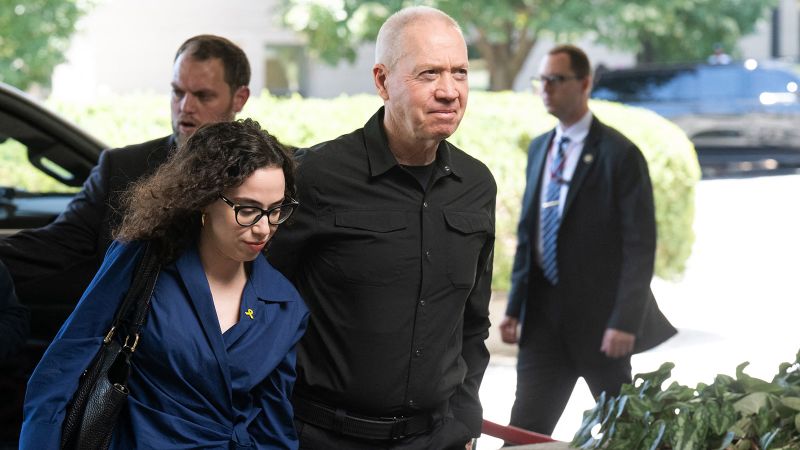American officials are eagerly anticipating meetings this week with Israel’s Defense Minister Yoav Gallant in hopes of gaining clarity on Israel’s war plans as tensions escalate between the Biden administration and Prime Minister Benjamin Netanyahu. The ongoing conflict in Gaza has left many questioning Israel’s next steps following Netanyahu’s ambiguous statements regarding a ceasefire. Despite Netanyahu’s insistence that the war will continue until all hostages in Gaza are returned, American officials are backing a proposal for a temporary ceasefire exchange. This discrepancy has further strained relations between Israel and the US, as international support for the ceasefire proposal continues to mount.
In response to Netanyahu’s comments, State Department spokesperson Matt Miller expressed concerns over the potential for continued military engagement in Gaza and criticized Israel’s plans to “mow the grass” in the region. The possibility of further conflict with Hezbollah militants along the northern border with Lebanon has also raised alarms within the Biden administration. US officials are eager to understand Israel’s transition into a new phase of the conflict and the implications for regional stability.
Gallant’s discussions with top US officials, including Defense Secretary Lloyd Austin and Secretary of State Antony Blinken, are expected to shed light on Israel’s post-war plans and address concerns over potential escalation. Netanyahu’s claims of weapons shipments being withheld by the US have added another layer of complexity to the already strained relationship between the two allies. Despite Netanyahu’s political posturing, the White House remains committed to constructive consultations with Gallant to ensure transparency and cooperation moving forward.
As Gallant emphasized the importance of Israel’s alliance with the US before departing for Washington, the need for clarity and collaboration in resolving the conflict in Gaza remains paramount. The outcome of this week’s meetings could have far-reaching implications for the region and the future of US-Israel relations.



